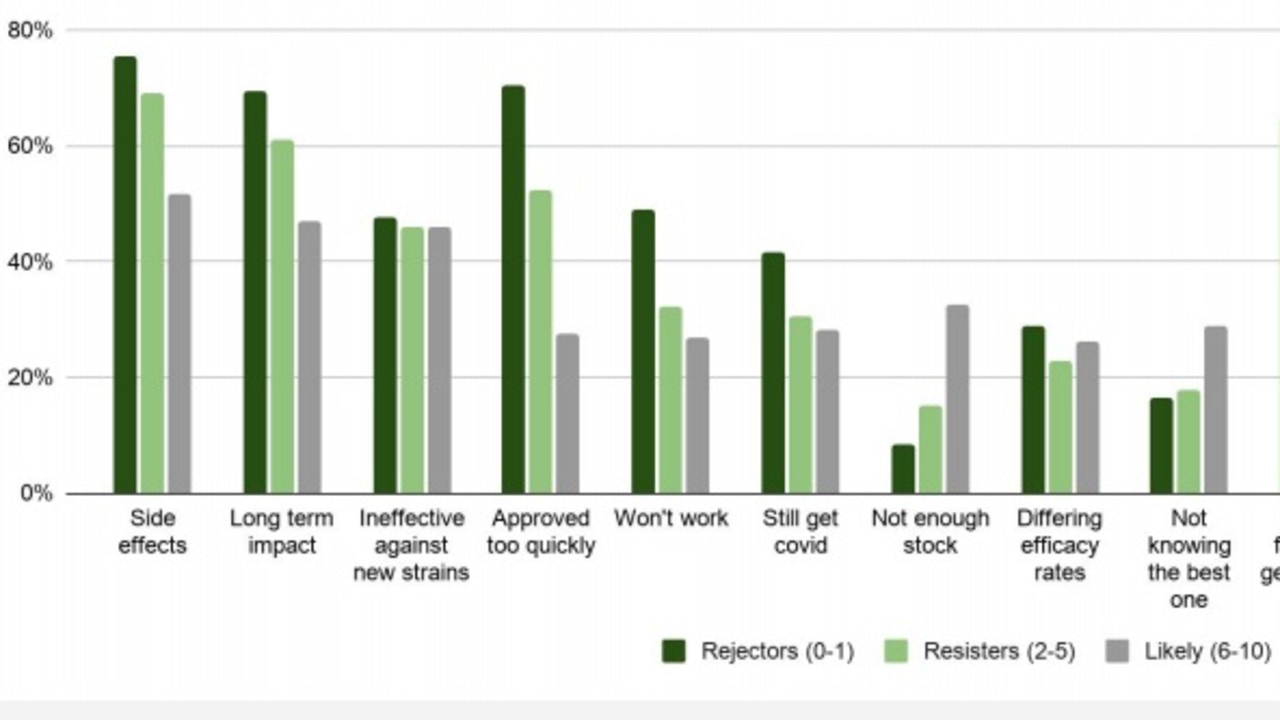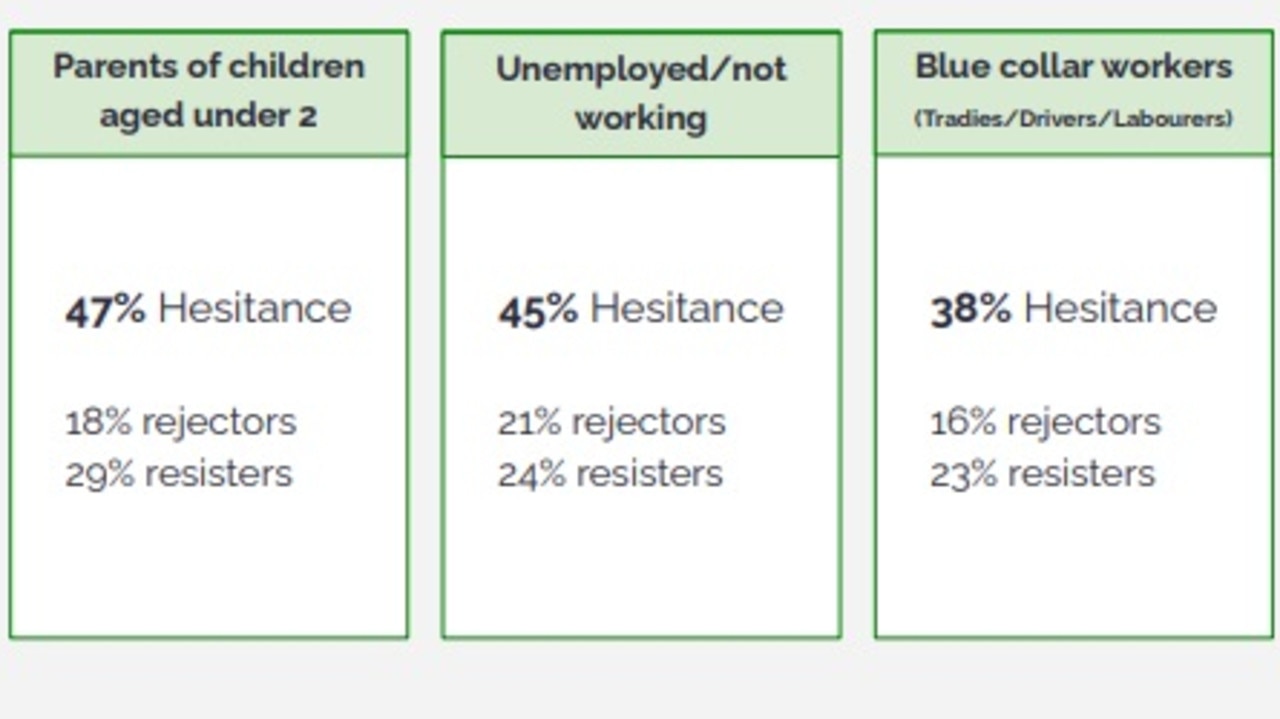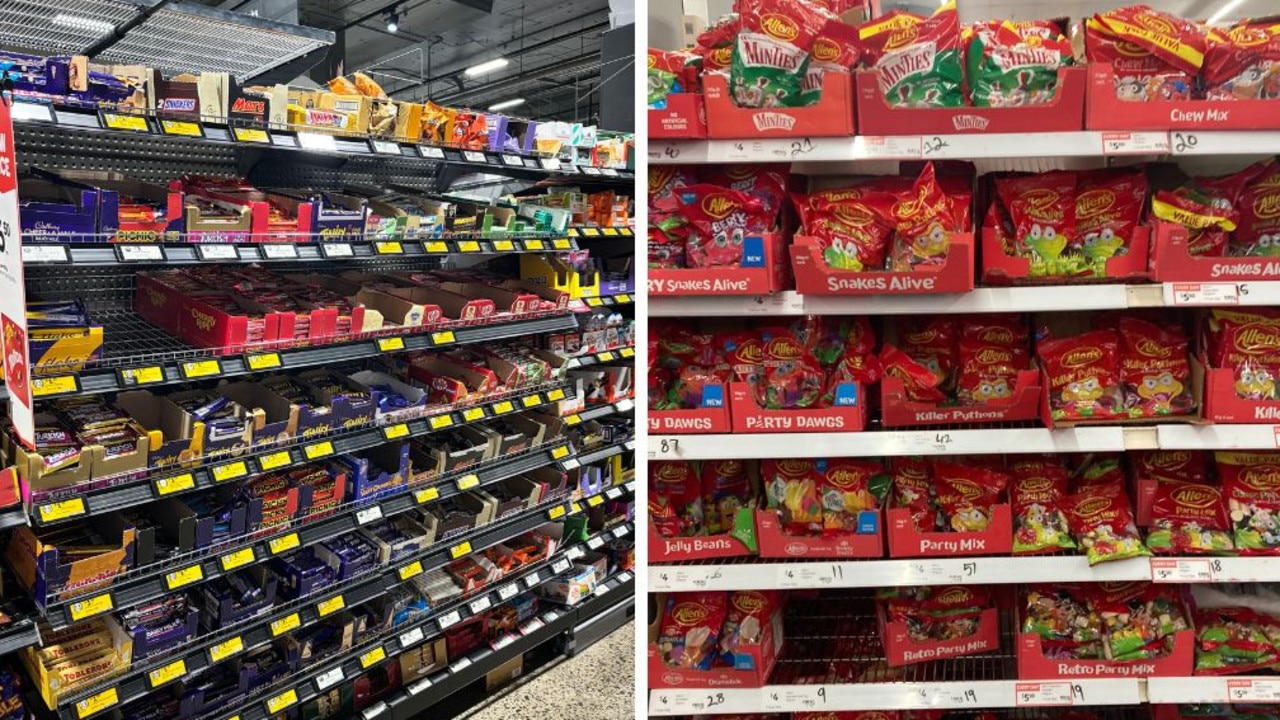COVID-19 vaccine rollout Australia: Groups least likely to get jab
A new report shows Australia’s vaccine rollout could be compromised by people who resist the jab — and they might not be who you suspect.

The Australian Government has said women under 35 will be the more hesitant demographic to get the COVID-19 jab but new research reveals there are five other groups of concern.
A report released by the Growth Intelligence Centre identifies six key groups that have “notably higher rates of vaccine resistance” and put the government’s proposed COVID-19 jab rollout strategy at risk.
“The government’s vaccine rollout will be compromised if there are ‘clustered’ pockets of Australians who resist getting the vaccine,” the researchers warn.
“This is compounded by varied vaccine effectiveness rates, raising the ‘critical mass’ hurdle to achieve herd immunity.”
While women under 35 have been targeted as a main group of concern, the report says “they are by no means an outlier”.
“This broad group also has a diversity of views on the vaccine, with varying levels of concern and confusion, that need to be separately addressed,” the authors said.
RELATED: Breakthrough in Aussie vaccine rollout
RELATED: Top COVID-19 vaccine question Australians want answers to

The five other groups comprise men aged 18-34, parents with infants, women aged 35-44, the unemployed and blue-collar workers.
The report says hesitators in these groups represent 4.5 million people or 78 per cent out of a total of 5.7 million and warns they “could lead to pockets of under vaccination that could derail reopening the country and of the economy”.
The groups were broken down further to indicate how many were resisters and how many with outright rejecters.
The group with the highest percentage of rejecters was unemployed people, at 21 per cent.
News.com.au’s Our Best Shot campaign answers your questions about the COVID-19 vaccine roll out. We’ll debunk myths about vaccines, answer your concerns about the jab and tell you when you can get the shot.
RELATED: Why Aussies are scared of COVID vaccine
RELATED: Town preparing for COVID war


While concerns about vaccine side effects, long term impact and the “rushed” approval process are important for all Australians, the report says for those who are more vaccine hesitant, countering concerns such as forced vaccination, and natural immunity as an alternative will be imperative to drive required levels of uptake.
Overall, the report found 1 in 3 Australians remain resistant or hesitant to getting the vaccine, with concerns around safety and efficacy common across the population.
The report found there are vaccine-hesitant mindsets which need engagement:
Confused optimists: Those who are hopeful, yet confused about efficacy and safety of vaccine.
W orried reluctants:Those who distrust the vaccine and feel it may be dangerous due to the fast approval, big-pharma profiteering and potentially being forced to get it.
The invincibles: Those with distrust for the vaccine and concerns that it may be dangerous, who would prefer to build a natural immunity.
The report warned these groups may compromise government efforts to vaccinate half the population by the end of June and that care needs to be given to the tone and tact required to best compel Australians to adopt the vaccine




